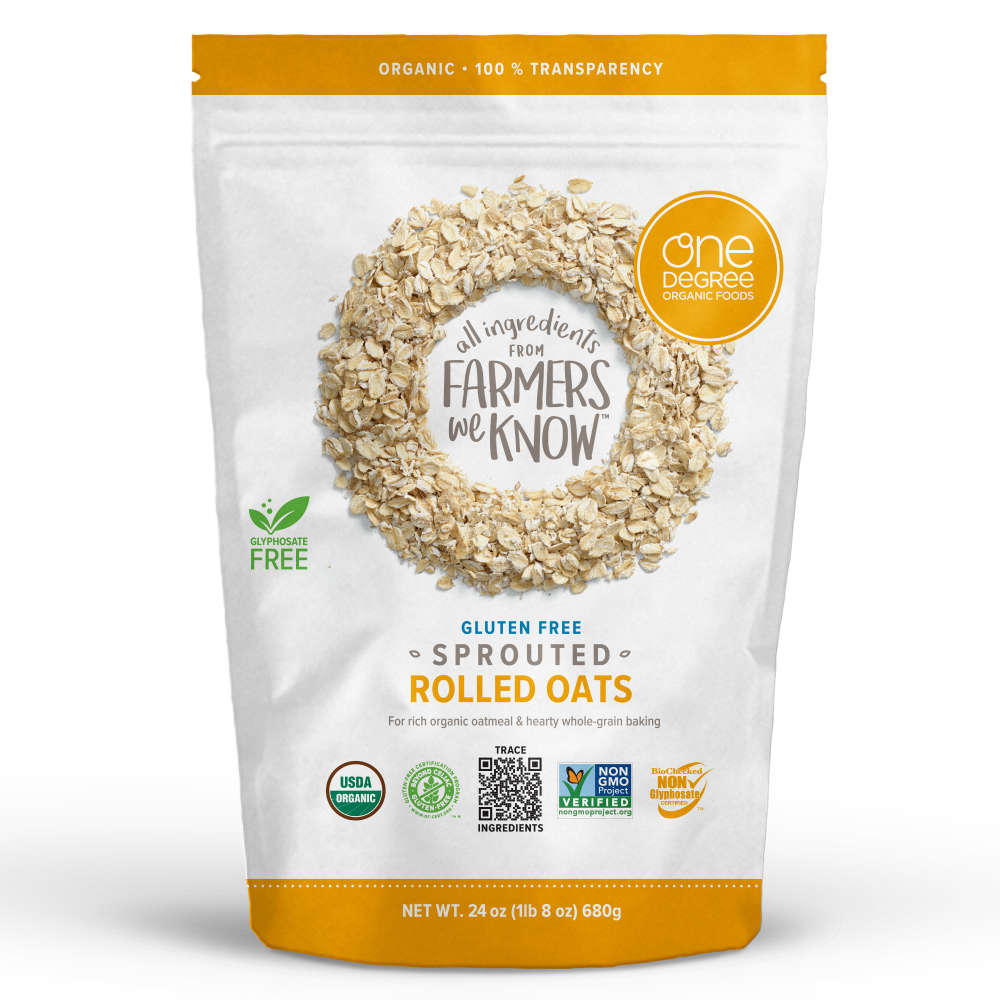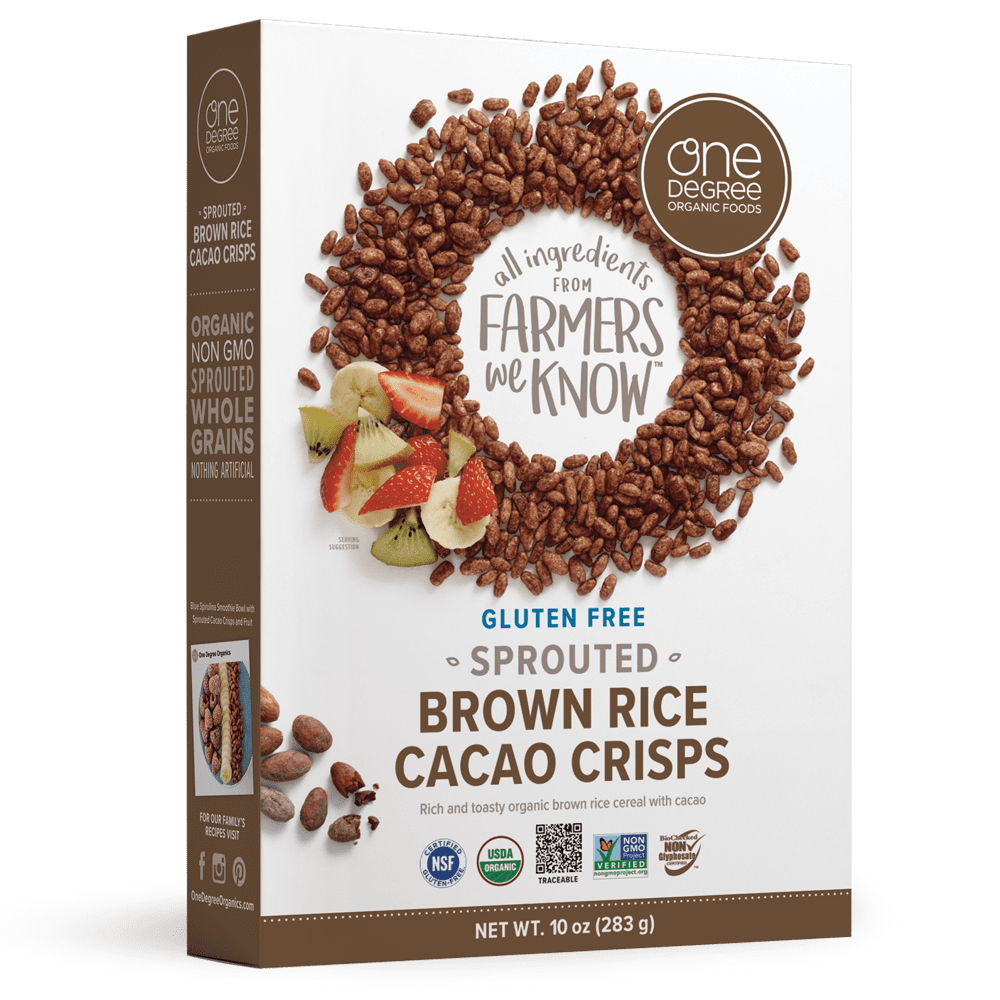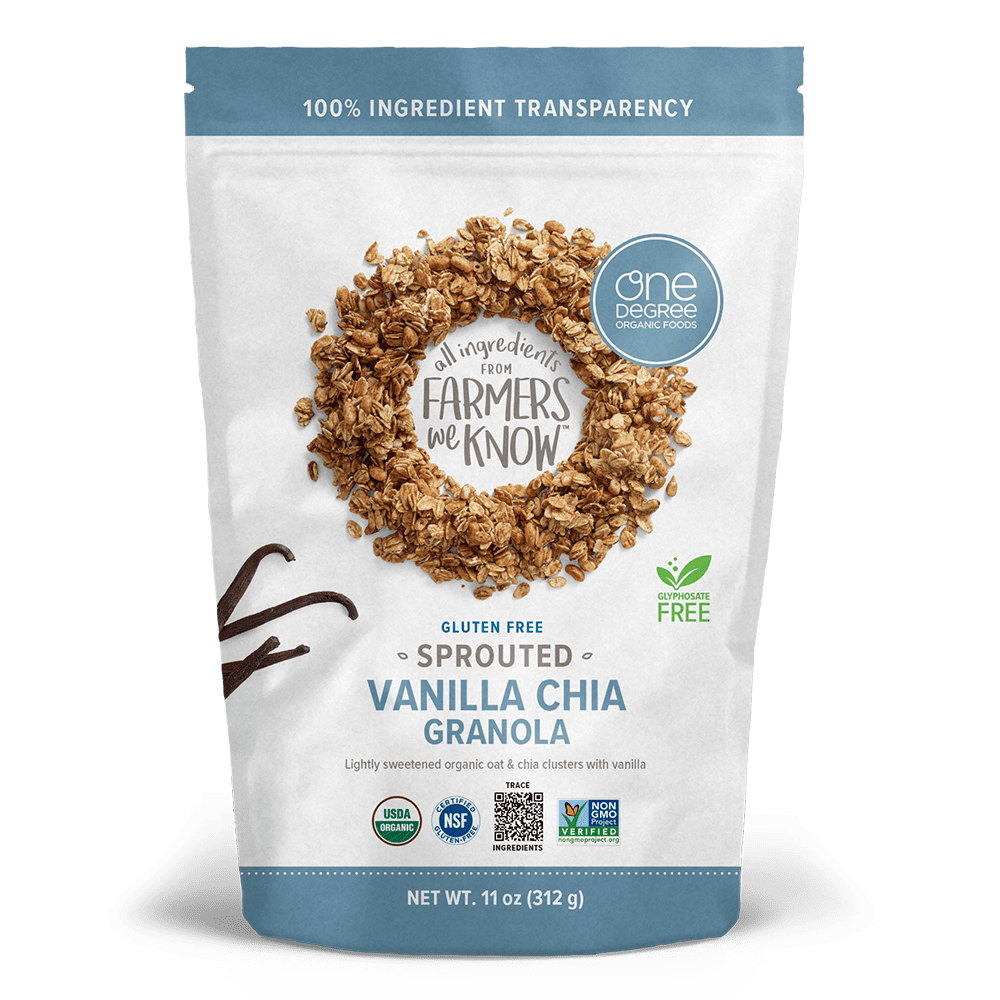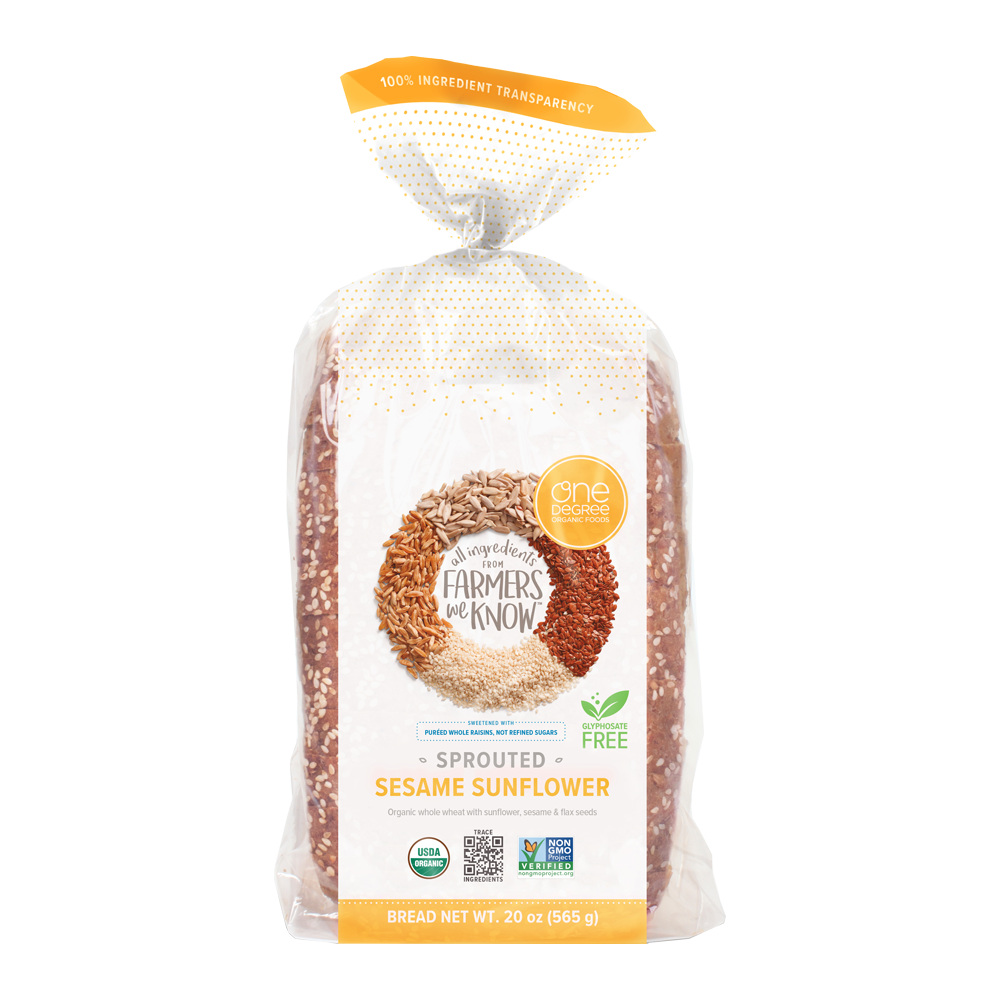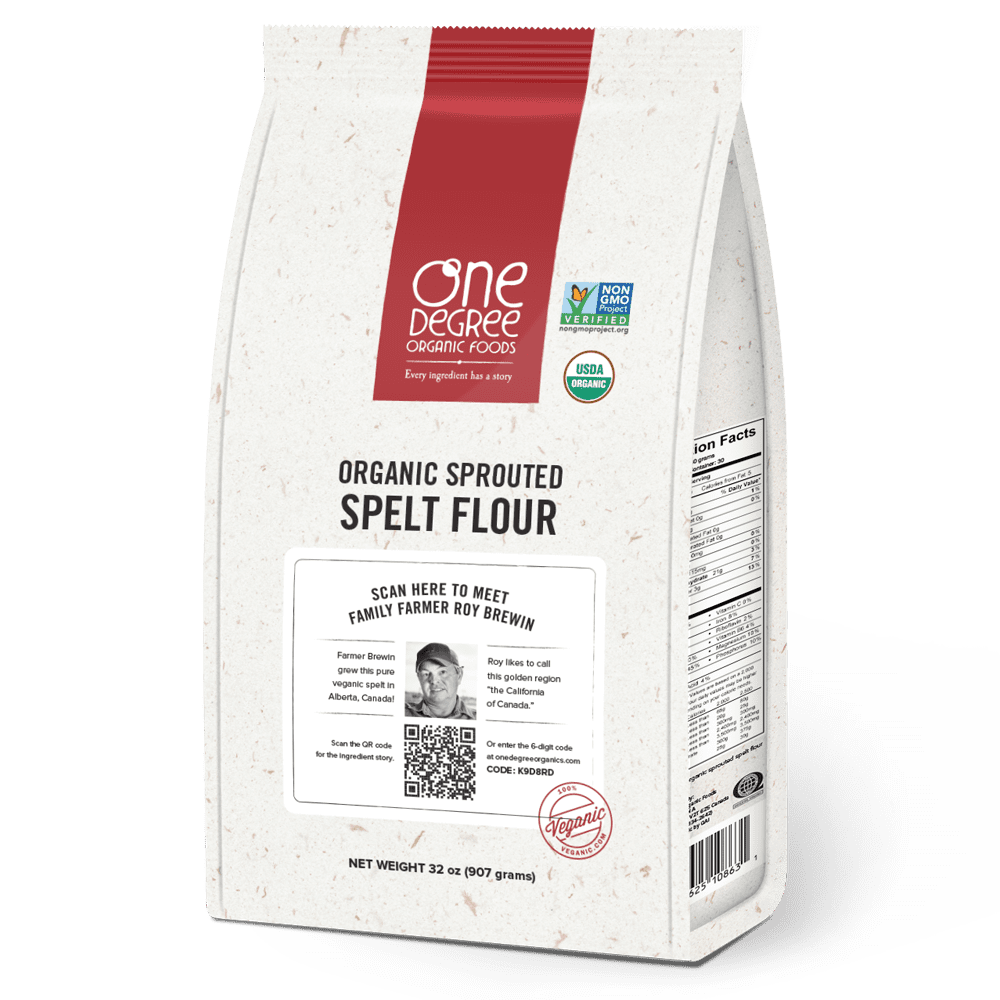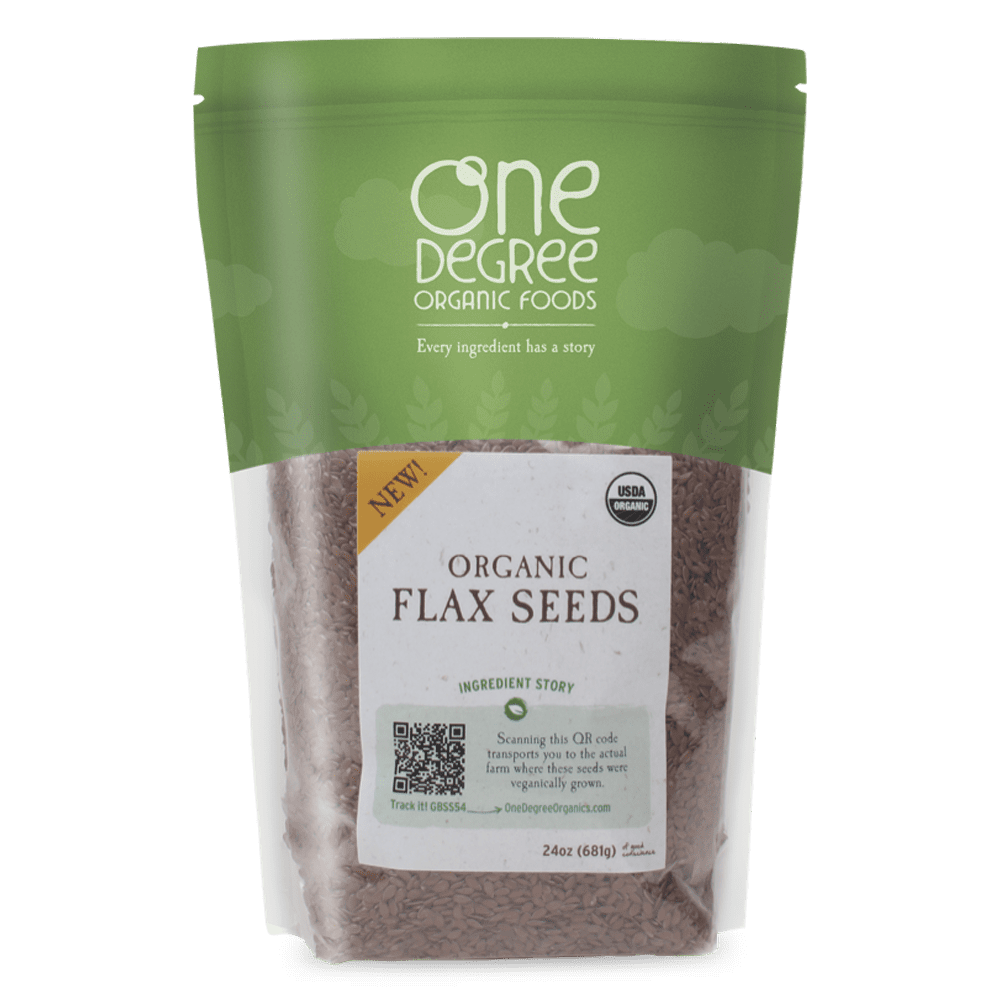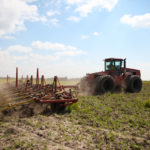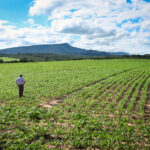Veganic Principles
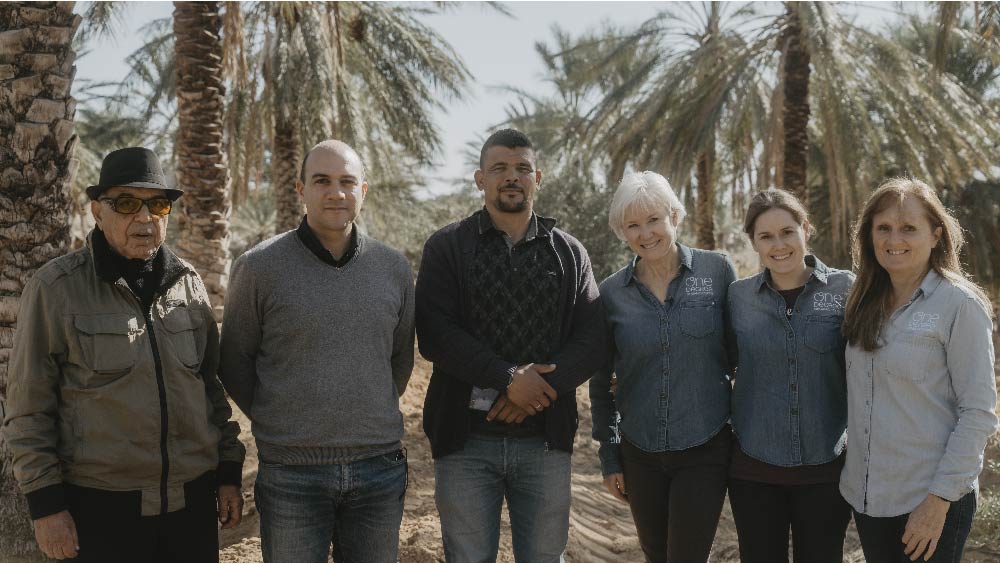
Everything We Do
Starts with Our Big Idea
Restoring trust in food is no small undertaking. Our commitment to total food transparency is built right into our name. It reminds us that every choice we make at One Degree Organics is about connecting you with the real farmers and families who grew every ingredient in the food you’re about to enjoy.
We made every ingredient traceable, because you deserve to know where your food came from. We don’t just buy certified organic ingredients from a broker or a supply pool. We visit our farmer partners in person, walk their farms, and bring back their stories so you can see how your food was grown.
We partner with farmers who tend their crops not only for this season’s yield, but who care for their land so it can sustain their families for generations to come. Our farmers use sustainable, veganic farming methods, and look after the soil, water, and resources they need so the crops they grow can thrive, year after year.
Their stories—who they are and how they farm—are as important to us as what they grow.
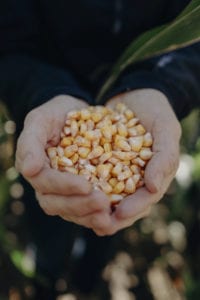
What’s In Our Food
is Just as Important as What Isn’t
Choosing our ingredients is far more than checking the certified organic box. Our goal is to maximize nutrients and eliminate toxins. We choose the cleanest, safest ingredients with the most nutrition possible.
Organic certification assures you that over 700 pesticides, herbicides, or chemical fertilizers are not used on crops. Although certified organic regulations exclude GMOs and don’t allow glyphosate to be used, we take the extra step of having all our products Non-GMO Project Verified and third-party tested Glyphosate Free. You won’t find artificial flavors, colors, sweeteners, or preservatives in our products, either. Our products are plant-based. And our gluten-free products are certified gluten-free, too.
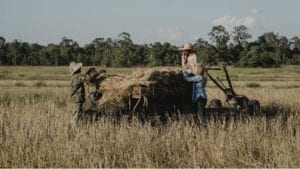
We Can Do Better
Our goal is always to find ways to be and do better. For our health, and yours.
Certified organic is an excellent starting point. But it still allows for use of animal by-products in lieu of chemical fertilizers—not just animal manure, but also bone meal, blood meal, hoof meal, fish meal or feather meal. These don’t have to be certified organic, either. Often they come from industrial-scale conventional livestock farms.
Using manure and by-products from factory farms is an indirect way of supporting animal agriculture that doesn’t align with our values. But it’s more than an ethical concern—it’s also about health. Manure and animal by-products from conventional farms carry traces1 of antibiotics2, pesticides, and heavy metals like arsenic (common in chicken manure)3, copper sulfate and zinc (from cattle and pig manure4).
On top of these residues from feed and veterinary medicines, manure and animal by-products can also carry pathogens like Escherichia coli, Salmonella, and Listeria5, too. That’s why we go beyond certified organic with our ingredients. Our farmer partners aren’t just certified organic—they also use completely plant-based farming methods, without manure or animal by-products.

Plant-based, Veganic, or Stockfree Organic.
What Does it Mean?
A step up from certified organic, plant-based organic farming—sometimes called veganic, vegan organic, or stockfree organic agriculture—means no animal inputs are used to return nutrients to the soil. Instead, plant-based organic farmers use other methods to build healthy soil.
Crop rotation is only one of many plant-based techniques veganic farmers use. Planting legumes like peas, beans and other nitrogen-fixing crops returns essential nutrients to the soil naturally6. Depending on the crop and what it draws from the soil in a growing season, some of our farmers may only plant a field with one of our ingredients every three or four years, like our quinoa farmer partner who alternates wheat and beans between quinoa crops.
Cover crops—sometimes called green ploughdown or green manure—use foliage-heavy plantings of clover or peas to return fiber, organic matter and nutrients that contribute to bioactivity in the soil7. Not meant for harvesting as a crop in itself, many cover crops are ploughed under to add biomass to the soil, along with stalks from the last harvest.
Because fields that are tilled over and over tend to lose fluffiness, some farmers practice no-till or reduced-till soil management. On their farms, cover crops are left on the surface until the next planting season instead, acting as a mulch the way cereal straw or leaves are also often used.
Plant-based compost—either as solids or as compost teas—is another common veganic way to add nutrients to the soil. But compost isn’t the only plant-based waste product farmers can use to enhance biological activity in their soil. Spent wash from molasses product and wastewater from distilleries can be sprayed on fields to add large quantities of soluble organic matter and plant nutrients to feed their crops8.
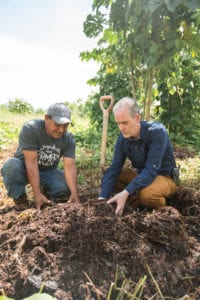
Healthy Soil, Healthy Plants,
Healthy People (And Healthy Planet)
We believe healthy soil is reflected in the food grown in it.
Certified organic farming produces soils with high soil organic matter, a diverse microbiome, and a healthy population of soil invertebrates9 (including earthworms) that support crop health10. We know that soil has an impact on human health—both positive or negative11. Plant-based organic farming methods eliminate the potential negative impacts that come with the use of manure and animal by-products in lieu of chemical fertilizers.
Our goal in choosing ingredients grown using plant-based organic methods is first about using the cleanest, safest ingredients, putting health first. It isn’t about veganism—though there are many positive reasons to eat plant-based!12
Eating plant-based—and supporting plant-based organic farmers—helps eliminate animal cruelty. Reducing animal suffering wasn’t why we started down the veganic path, but it is a positive side benefit we’re happy to contribute to.
Plant-based eating and veganic farming choices are environmentally sustainable, helping to put a meaningful dent in our carbon footprint. This is a positive impact we’re proud to make, but it’s also not our main motivation for taking this path.
Above these, the impact on human health is why we choose plant-based organically-grown ingredients for One Degree Organics. We believe even omnivores should care about veganic produce and grains—because we think whatever you eat, you should choose the healthiest, cleanest option available to you.
We recognize that organics is a step-by-step journey. And we encourage everyone to go as far as you can with each choice and each situation.
For us, that goes all the way back to the farm our food comes from.
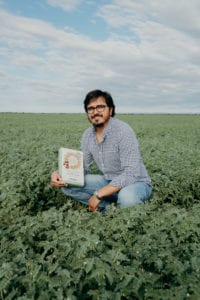
Vote With Your Wallet.
And Your Fork.
One Degree Organics is not the first to explore this idea, but we’ve been on the leading edge of the plant-based organic movement since we started our company.
Veganic, plant-based organic, stockfree organic—whatever you call it, it’s about making a deeper commitment to organic than is required by industry. At One Degree, we take this more seriously than regulations require, because we believe in the idea of voting with your fork.
When you think something can be done better, the best way to create change is to support those who are doing it the way you want to see it done. Creating the food system we want for the world starts with our wallets.
Choosing plant-based organic ingredients creates and sustains a market for farmers who grow plant-based organic ingredients. When there is a market, more farmers will grow that way; when more veganic organic ingredients are available, more companies can make that choice.
That’s how certified organics have gained momentum around the world. And that’s how plant-based organics will, too. Starting with us.
Learn more about veganic farming and plant-based organic ingredients—scroll down to sign up for our newsletter, and follow us on Instagram and Facebook for more!
References:
- da Rosa, C. R., Comin, J. J., Souza, M., Ricachenevsky, F. K., Lana, M. A., Gatiboni, L. C., Ceretta, C. A., and Brunetto, G., Should Heavy Metals Be Monitored in Foods Derived From Soils Fertilized With Animal Waste? Frontiers in Plant Science, Volume 9 | Article 732, 2018. Available from: https://www.frontiersin.org/articles/10.3389/fpls.2018.00732/full, Accessed June 10, 2020.
- Xie, W.-Y., Shen, Q., Zhao, F. J., Antibiotics and Antibiotic Resistance from Animal Manures to Soil: A Review. European Journal of Soil Science, January, 2018, 69, 181-195. August 31, 2017. Available from: https://onlinelibrary.wiley.com/doi/epdf/10.1111/ejss.12494, Accessed June 15, 2020.
- Kyakuwaire, M., Olupot, G., Amoding, A., Nkedi-Kizza, P., Ateenyi Basamba, T., How Safe is Chicken Litter for Land Application as an Organic Fertilizer?: A Review. International Journal of Environmental Research and Public Health, 2019, 16, 3521, September 20, 2019. Available from: https://www.mdpi.com/1660-4601/16/19/3521, Accessed February 27, 2020.
- Ogiyama, S., Sakamoto, K., Suzuki, H., Ushio, S., Anzai, T., and Inubushi, K., Accumulation of Zinc and Copper in an Arable Field after Animal Manure Application. Soil Science & Plant Nutrition, 51:6, 801-808, June 17, 2005. Available from: https://www.tandfonline.com/doi/abs/10.1111/j.1747-0765.2005.tb00114.x, Accessed June 15, 2020.
- Sharma, M. and Reynnells, R., Importance of Soil Amendments: Survival of Bacterial Pathogens in Manure and Compose Used as Organic Fertilizers. Microbiology Spectrum, 4(4): PFS-0010-2015, August 5, 2016. Available from: https://europepmc.org/abstract/med/27726763, Accessed June 15, 2020.
- Nair, A. and Delate, K., Chapter 11: Composting, Crop Rotation, and Cover Crop Practices in Organic Vegetable Production; In Organic Farming for Sustainable Agriculture (pp. 231-257). 2016. Springer International Publishing, Cham.. Available from: https://dl.agrischool.ir/download/organic/organic_farming_1.pdf#page=242, Accessed June 15, 2020.
- Nair, A. and Delate, K., Chapter 11: Composting, Crop Rotation, and Cover Crop Practices in Organic Vegetable Production; In Organic Farming for Sustainable Agriculture (pp. 231-257). 2016. Springer International Publishing, Cham.. Available from: https://dl.agrischool.ir/download/organic/organic_farming_1.pdf#page=242, Accessed June 15, 2020.
- Baskar, M., Kayalvizhi, C., and Bose, Chandra Subash M., Eco-friendly Utilization of Distillery Effluent in Agriculture – a Review. Agriculture Review, 24(1): 16-30, 2003. Available from: http://arccarticles.s3.amazonaws.com/webArticle/articles/ar241002.pdf, Accessed June 16, 2020.
- Jernigan, A. B., Wickings, K., Mohler, C. L., Caldwell, B. A., Pelzer, C. J., Wayman, S., Ryan, M. R., Legacy Effects of Contrasting Organic Grain Cropping Systems on Soil Health Indicators, Soil Invertebrates, Weeds, and Crop Yield. Agricultural Systems 177 (2020) 102719, November 2019. Available from: https://reader.elsevier.com/reader/sd/pii/S0308521X19306602?token=13FE860151CE3C44BDE81E38AA166263C8B587583B7631655D03103CB374B577CA34DEA8AF2869113E69C96A5871E788, Accessed June 15, 2020.
- Lori, M., Symnaczik, S., Mader, P., De Deyn, G., Gattinger, A., Organic Farming Enhances Soil Microbial Abundance and Activity—A Meta-Analysis and Meta-Regression. PLoS ONE 12(7): e0180442, 2017. Available from:https://www.ncbi.nlm.nih.gov/pmc/articles/PMC5507504/pdf/pone.0180442.pdf, Accessed June 15, 2020.
- Steffan, J. J., Brevik, E. C., Burgess, L. C., Cerda, A., The Effect of Soil on Human Health: An Overview. European Journal of Soil Science, 2018 January; 69(1)159-171. Available from: https://europepmc.org/backend/ptpmcrender.fcgi?accid=PMC5800787&blobtype=pdf, Accessed June 15, 2020.
- Chen, C., Chaudhary, A., Mathys, A., Dietary Change Scenarios and Implications for Environmental, Nutrition, Human Health and Economic Dimensions of Food Sustainability. Nutrients 2019, 11, 856, April 16, 2019. Available from: https://www.mdpi.com/2072-6643/11/4/856/htm, Accessed November 18, 2019.
